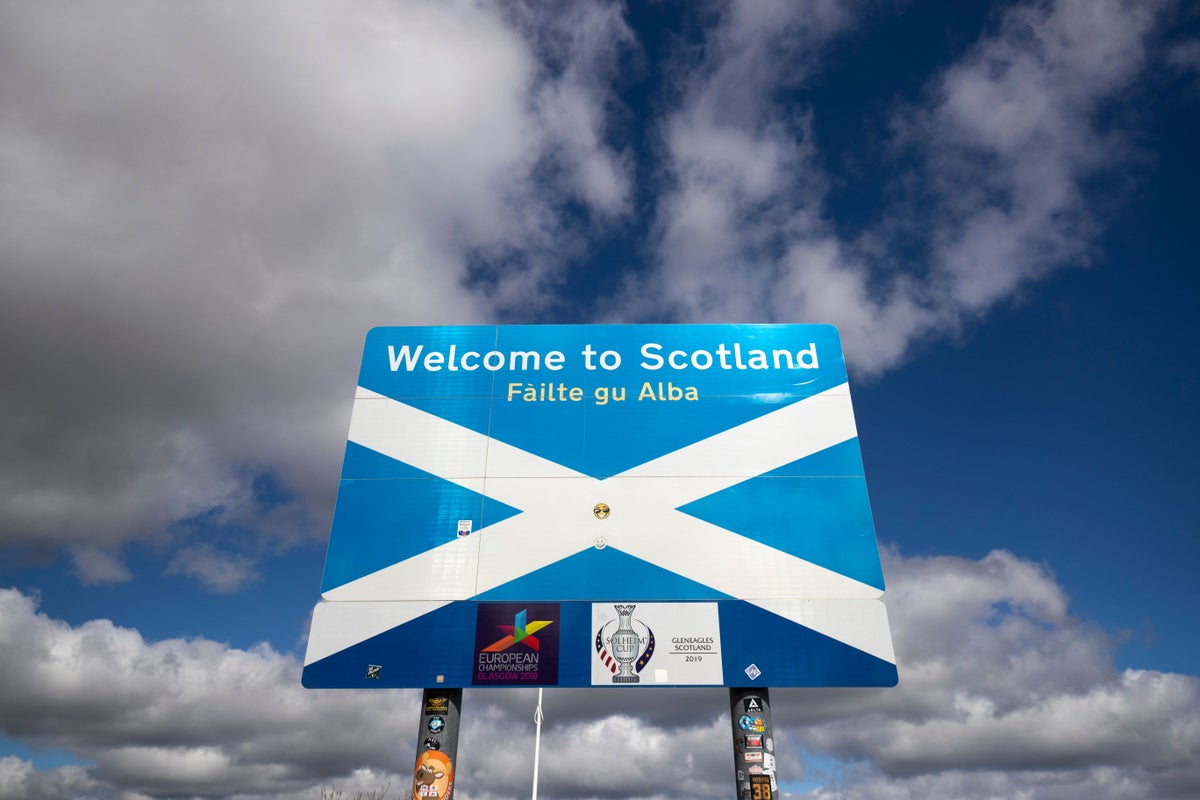
The SNP’s currency proposals for Scotland “lack any form of credibility”, the UK Government said, as MPs supported a Commons motion calling for Scottish independence.
Scotland Office minister John Lamont took aim at the SNP’s plans for an independent Scotland, suggesting their desire to continue using sterling and then adopt a Scottish pound was a “subtle admission of the economic benefits of remaining part of the UK”.
Scotland’s First Minister Nicola Sturgeon last month repeatedly refused to give a timescale for moving to the new currency.
The remarks from Mr Lamont came before the House of Commons voted 38 to zero, majority 38, in favour of an SNP motion arguing Scotland “must be independent for economic stability” and criticising the “economic damage” caused by the mini-Budget at Westminster.
SNP Westminster leader Ian Blackford labelled the vote a “historic moment”, telling the Commons: “This House has voted in favour of a motion on Scottish independence, the first time that has happened, with a clear majority of those that were elected from Scottish constituencies voting for that proposition.”
But the motion is non-binding and Deputy Speaker Dame Eleanor Laing later confirmed the House was “only just” quorate.
The division list released by the Commons authorities later showed 39 MPs voted for the motion while no MPs from the Conservatives, Labour and Liberal Democrats took part.
A minimum of 40 MPs are required to be present for a Commons vote, with the four tellers and Dame Eleanor’s presence meaning that 44 out of 649 sitting MPs were in attendance.
MPs from the Conservatives, Labour and Liberal Democrats opted not to take part.
During the debate, Mr Blackford labelled the UK a “failing state” and said independence would also allow Scotland to make a return to the European Union following the “utter disaster” of Brexit.
He described Europe as a “partnership of equals”, adding: “The fact is we will keep the pound until such time that a number of economic tests that are met, that would allow us to have a Scottish pound, that’s what will happen.”
Mr Blackford added: “In order to join (the) euro you need to join the Exchange Rate Mechanism (ERM) for a two-year period.
“Joining the ERM is voluntary, you cannot be forced into the euro.”
But Mr Lamont, winding up the six-hour debate, said: “The SNP leader here at Westminster got in, frankly, a bit of a muddle yet again over what currency an independent Scotland would use.
“Now, the SNP’s currency proposals lack any form of credibility. In the same breath of the SNP proposes establishing a Scottish pound whilst also committing to re-joining the European Union.
“Now given the EU clearly states adopting the euro is a core requirement of any membership, I struggle to find any credibility in what the SNP is proposing.
“The SNP’s proposals, I would suggest, to continue to use the pound are a subtle admission of the economic benefits of remaining part of the UK.”
Scotland Secretary Alister Jack also said the Scottish Government’s independence papers have “provoked scorn from respected economic experts”, before adding: “One prominent nationalist, and I apologise in advance for the unparliamentary language, but I quote, referred to the recent economy paper as utter pish.
SNP Pete Wishart (Perth and North Perthshire) said Scotland in 2022 was “almost a different country entirely from 2014”, adding: “We can’t go on like this, we must have a referendum to settle this.”
SNP Gavin Newlands (Paisley and Renfrewshire North) argued the UK “is a failing state” with a social security system “that Kafka would have torn up at first draft”.







